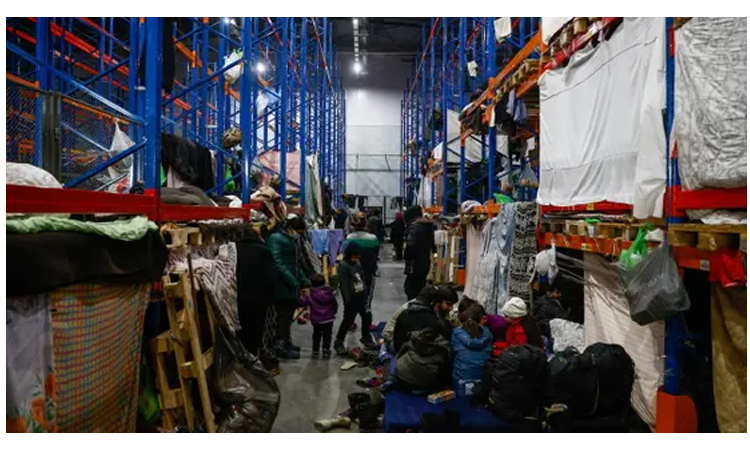News Flash

VIENNA, July 23, 2025 (BSS/AFP) - The EU migration pact could help member states prevent "hostile actors" from using migrants and refugees to put pressure on them, the bloc's rights agency said on Wednesday.
Some countries outside the European Union have repeatedly funnelled migrants and refugees to the bloc's external borders to put pressure on the EU, the European Union Agency for Fundamental Rights (FRA) said in a paper on the topic.
The EU migration pact is due to come into force in mid-2026 and would allow countries to return rejected asylum applicants more quickly, the FRA said.
"The effective and speedy implementation of return procedures in full respect of applicable safeguards may discourage the instrumentalisation of migrants and refugees," the FRA paper noted.
It said that EU countries could impose sanctions on "hostile" states or restrict the visas of people from those countries as part of a raft of measures to discourage the practice.
Poland, for instance, has accused Belarus and Russia of flying in or bussing people from Afghanistan, Iraq, Ethiopia and other nations to their borders with the EU member state before trying to direct them across.
Rights groups have subsequently accused Warsaw of unlawfully, and sometimes violently, forcing people back across its borders.
In 2023 and 2024, almost 60 people died along the EU land border with Belarus, many from hypothermia while stranded there, according to the FRA.
The new pact will allow EU members to prioritise the processing of asylum claims by those subject to this sort of instrumentalisation, deploying additional staff to help, the FRA added.
"Instead of punishing migrants and refugees who are being used and abused for political gains, EU countries need to direct their measures towards the hostile actors," FRA director Sirpa Rautio said.
"Some of the current responses to instrumentalisation may undermine the protection of fundamental rights at the EU's borders, including the right to asylum," she added.
In its paper, the FRA said that "certain rights, such as the prohibition of torture or sending people back to where their lives and freedom are at risk, are absolute".
"They cannot be limited under any circumstances," the group said.